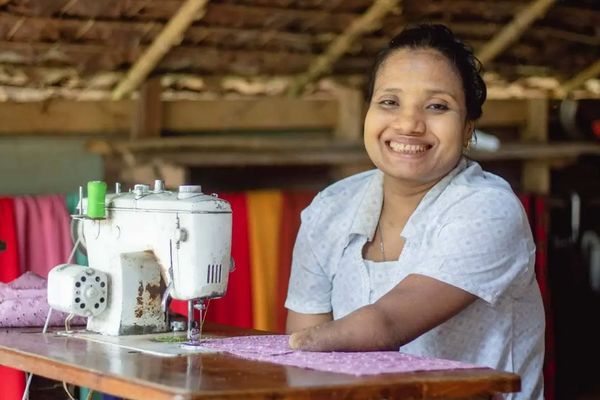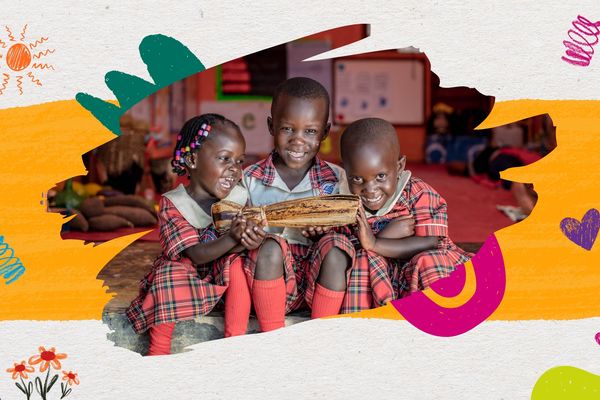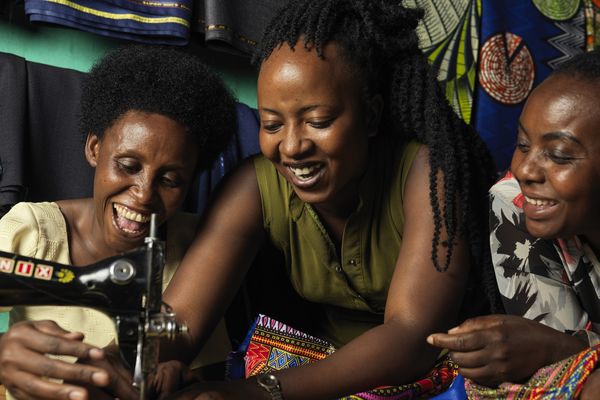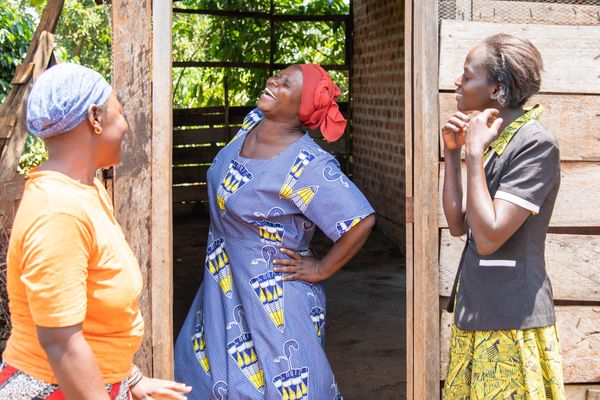Designing holistic solutions for people with disabilities: Lessons from BRAC Myanmar
Date: 5 Dec 2023

According to an evaluation study conducted by BRAC Myanmar after the end of the project 100% of PWD respondents said the programme had increased their resilience and made them more inclusive in the community, 91% said their financial literacy and knowledge levels has increased, and 97% of the respondents who had taken PWD loans stated that their livelihood, living conditions had improved.
“Six years ago, my daughter and I were involved in a car accident, resulting in the loss of both my legs and severe facial injuries for her. I was the sole earning member of my family. Without my ability to move, I suddenly found myself out to work, and with no chance of finding any decent employment. I resorted to begging for money. My neighbours avoided us, and we became a burden on relatives who supported us with food and expenses. Thinking of those days still haunts me”.
This is Zin Mar Wai’s story from Myanmar. And she is not alone.
According to the 2019 Myanmar Inter-Censal Survey, an estimated six million people, 12.8% of the country’s total population, have at least one type of disability. Among the people who reported having a disability, 4.3 million lived in rural areas and the prevalence of disability is higher among women (13.9%) than men (11.6%).
Challenges faced by people living with disabilities encompass a spectrum of issues. They depend on contributions from communities and family members. They are deemed ineligible for loans and savings, and cannot access reliable financial services. This impediment hinders their ability to embark on small businesses, engage in farming, or pursue other income-generating activities.
An integrated programme to support persons with disabilities in Myanmar
The Financial and Social Inclusion Project, funded by LIFT and implemented by BRAC Myanmar partnership with AAR Japan, was launched in November 2019 to address the multidimensional needs of people with disabilities, people displaced by conflict, women in vulnerable situations, and ethnic minorities in four Kayin townships: Hpa-an, Hlaingbwe, Kawkareik, and Myawaddy.
The project was designed based on the principles of BRAC’s Graduation model, an evidence-based, multifaceted, sequenced set of interventions, adapted to address the unique circumstances that people with disabilities live in, in Myanmar.
- Cash support: Participants affected by the flood access cash support for higher resilience and the war affected beneficiary households.
- Life skills training: Participants access in-person coaching sessions, covering a spectrum of life skills, including livelihood, social skills, health, nutrition, and family planning.
- Technical skills training and financial literacy: Participants undergo comprehensive training in business, enterprise, leadership, management, and financial literacy, enhancing their awareness of savings, borrowing, and business growth.
- Asset transfer: Upon completing the training, participants receive both farm and non-farm assets, like sewing machines, tailoring accessories, materials and raw stocks, to help kickstart businesses and income generation.
- Financial services: After successful completion of the training and asset transfer, interested participants were connected with BRAC’s microfinance programme to access loans and savings services specifically designed for people with disabilities, to continue to grow their businesses. Clients can take loans up to MMK 100,000 – 20,000,00 (USD 46 – 952) and the loan tenure varies from 6-12 months with monthly repayments. The loans are completely collateral free. A distinctive aspect of the product is the option to secure a loan using a family member’s ID in the event that the borrower doesn’t possess one. Additionally, clients facing challenges with repayment can benefit from a two-times leave voucher facility.
Project Outcomes
According to an evaluation study conducted by BRAC Myanmar after the end of the project 100% of PWD respondents said the programme had increased their resilience and made them more inclusive in the community, 91% said their financial literacy and knowledge levels has increased and 97% of the respondents who had taken PWD loans stated that their livelihood, living conditions had improved. Additionally, 88% of the respondents expressed the grant support received – combined with training – effectively taught them how to generate income and gain financial independence. By October 2023, the project reached 8,340 participants, 45% of whom were women.
The inclusive financial product has scaled and is now being offered in other parts of Myanmar including Kayin, Yangon, Mandalay, Bago, Taungoo, Mon regions. So far, 700 clients have accessed loans from BRAC, including participants from the project.
Putting the ‘ability’ in disability
Zin Mar Wai no longer relies on her relatives for support. She runs a grocery business and tells her daughter, “We can do everything. We have our intelligence and we can take control of our own futures.”
At BRAC, we believe in the potential of people to take control of their own lives, regardless of who they are and what situation they are in. Disability inclusion means designing environments where everyone can flourish. It means designing products and interventions that are grounded in the belief that people with disabilities have the capacity to transform their own lives. It is holistic, inclusive solutions like these that can change the way we work with people with disabilities – one that puts their dignity and self-reliance at the centre.
Wut Yee Htun is a Communications Coordinator at BRAC Myanmar
Tahjib Shamsuddin is Senior Communications Manager at BRAC International Microfinance



